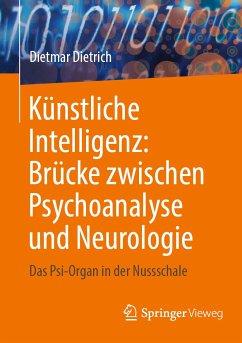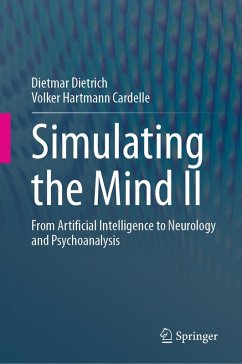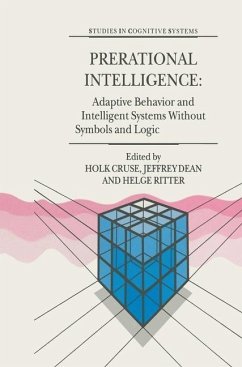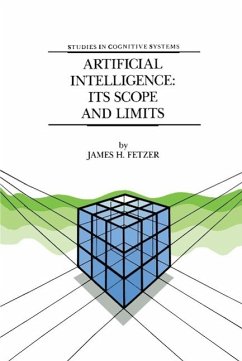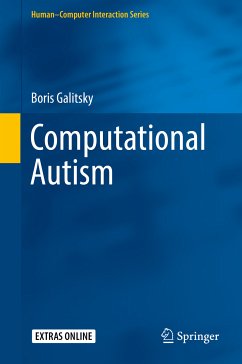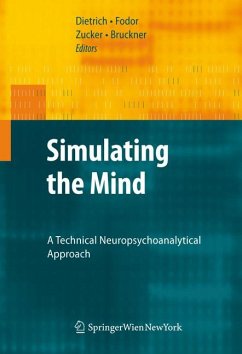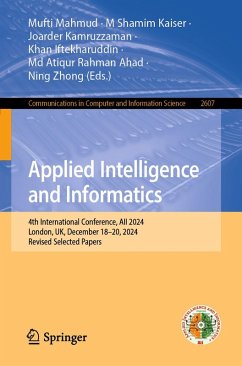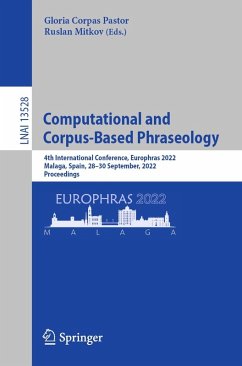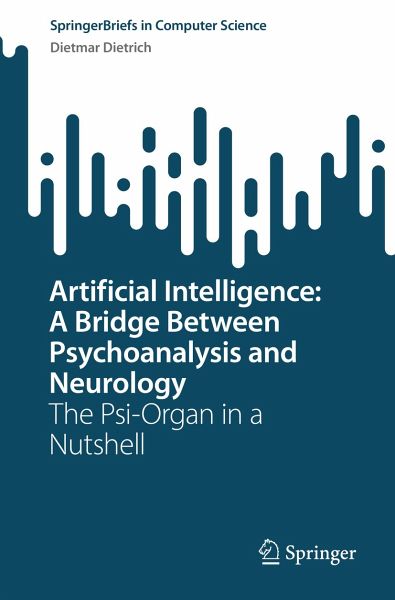
Artificial Intelligence: A Bridge Between Psychoanalysis and Neurology (eBook, PDF)
The Psi-Organ in a Nutshell
Versandkostenfrei!
Sofort per Download lieferbar
44,95 €
inkl. MwSt.
Weitere Ausgaben:

PAYBACK Punkte
22 °P sammeln!
To be able to merge the psyche with the neural system has been a long-sought goal. There is much scientific literature on results from research on this topic, but the goal of this "booklet" is to present the subject in a nutshell and to attract a wider audience to this highly complex topic. Scientists often need years to grasp the scope and implications of merging the psyche with the neural system. Does that really have to be the case? What does the simulated model look like? What are the underlying philosophies? Can it be understood without mathematical formalism?Uniting the psyche and neurol...
To be able to merge the psyche with the neural system has been a long-sought goal. There is much scientific literature on results from research on this topic, but the goal of this "booklet" is to present the subject in a nutshell and to attract a wider audience to this highly complex topic. Scientists often need years to grasp the scope and implications of merging the psyche with the neural system. Does that really have to be the case? What does the simulated model look like? What are the underlying philosophies? Can it be understood without mathematical formalism?
Uniting the psyche and neurology in one model, on the one hand, allows psychological and social theories to be tested on a scientific basis using simulation experiments. On the other hand, a model developed according to the functional structures of the human brain, let us call it the Psi-Organ, which comprises neurology and psyche as one unit, can serve as a basis for AI systems. These can be systems with cognitive capabilities that save human lives, save energy, ensure safety at airports, provide support in caring for the elderly and much more. In other words, systems that can simplify our lives in the most relevant ways and on a broad basis. This model, the Psi-Organ, goes far beyond today's primarily behavior-based AI methods.
The manuscript can serve as an excellent introduction to the problem of understanding and modelling the human mind, and to the problem of achieving artificial "intelligence" in general, increasing awareness and understanding for the associated challenges. In that regard, it is a valuable supplementary text for advanced students or researchers in the field, notably not only in AI, but also (and perhaps primarily) in the medical fields.
Uniting the psyche and neurology in one model, on the one hand, allows psychological and social theories to be tested on a scientific basis using simulation experiments. On the other hand, a model developed according to the functional structures of the human brain, let us call it the Psi-Organ, which comprises neurology and psyche as one unit, can serve as a basis for AI systems. These can be systems with cognitive capabilities that save human lives, save energy, ensure safety at airports, provide support in caring for the elderly and much more. In other words, systems that can simplify our lives in the most relevant ways and on a broad basis. This model, the Psi-Organ, goes far beyond today's primarily behavior-based AI methods.
The manuscript can serve as an excellent introduction to the problem of understanding and modelling the human mind, and to the problem of achieving artificial "intelligence" in general, increasing awareness and understanding for the associated challenges. In that regard, it is a valuable supplementary text for advanced students or researchers in the field, notably not only in AI, but also (and perhaps primarily) in the medical fields.
Dieser Download kann aus rechtlichen Gründen nur mit Rechnungsadresse in A, B, BG, CY, CZ, D, DK, EW, E, FIN, F, GR, HR, H, IRL, I, LT, L, LR, M, NL, PL, P, R, S, SLO, SK ausgeliefert werden.



